
What are the components of a Chess Set?
chess, one of the oldest and most popular board games, played by two opponents on a checkered board with specially designed pieces of contrasting colours, commonly white and black.White moves first, after which the players alternate turns in accordance with fixed rules, each player attempting to force the opponent's principal piece, the King, into checkmate—a position where it is unable to.

Names Of All The Chess Pieces (With Pictures & Facts) Chess, Learn chess, How to play chess
1. The Pawn. The pawn is the lowest-value piece on the chessboard, and there are eight pawns per player. The way pawns are arranged on the board is called the "pawn structure." On the first move, a pawn may move forward one or two spaces. On all subsequent turns, they may only move one space.
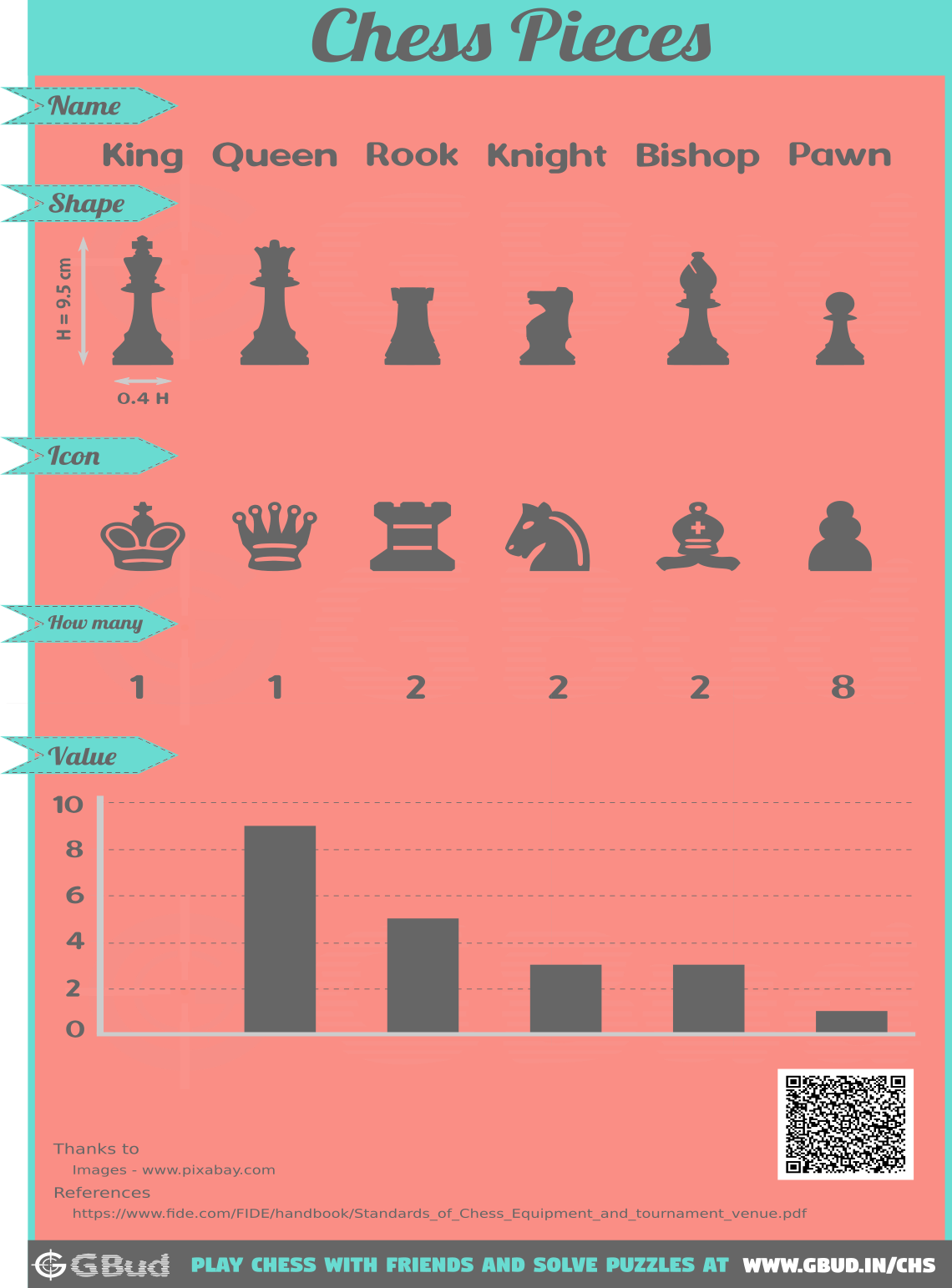
Download chart of chess pieces in pdf
CHESS PIECE NAMES, PICTURES AND MEANINGS What are the Chess Pieces Names and Pictures: (With Meanings)? THE KING: CHESS PIECE NAMES, PICTURES, AND MEANINGS. The King: Heart and Soul of the Chessboard. The King represents the core of your chess game. This majestic figure is not only the central piece but the soul of your strategy.
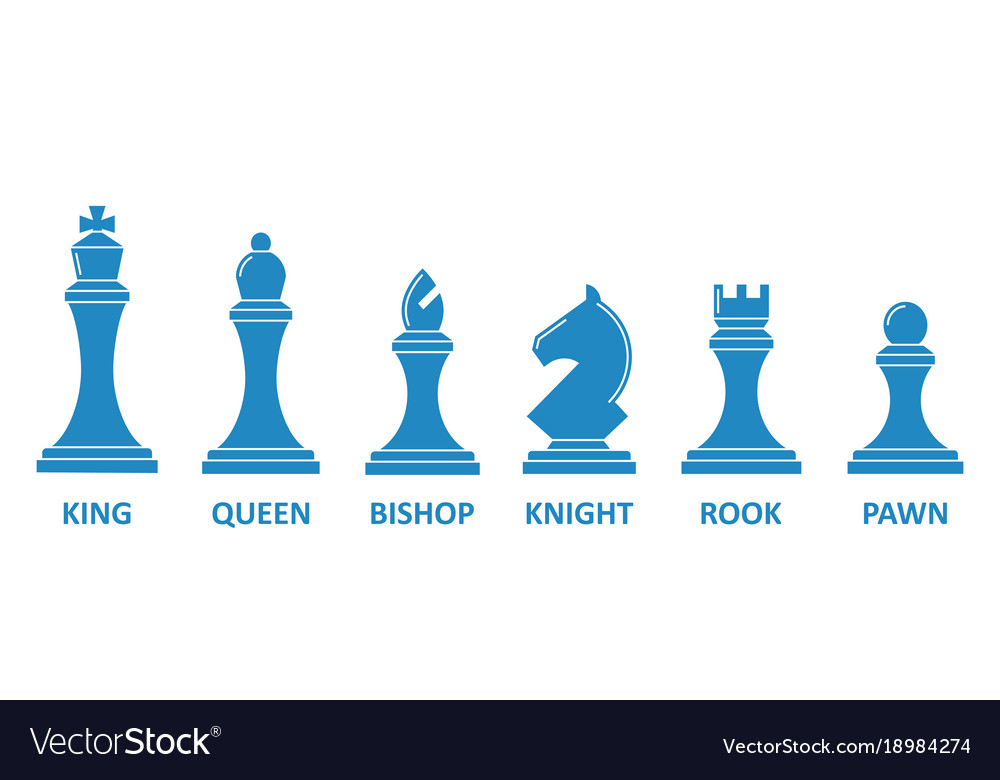
chess set pieces names
In a standard game of chess, there are six different types of chess pieces namely king, queen, bishop, knight, rook, and pawn. There are 16 chess pieces on each side including one king, one queen, two bishops, two knights, two rooks, and eight pawns, making a total of 32 chess pieces in all. The chess pieces are designed in a variety of styles.
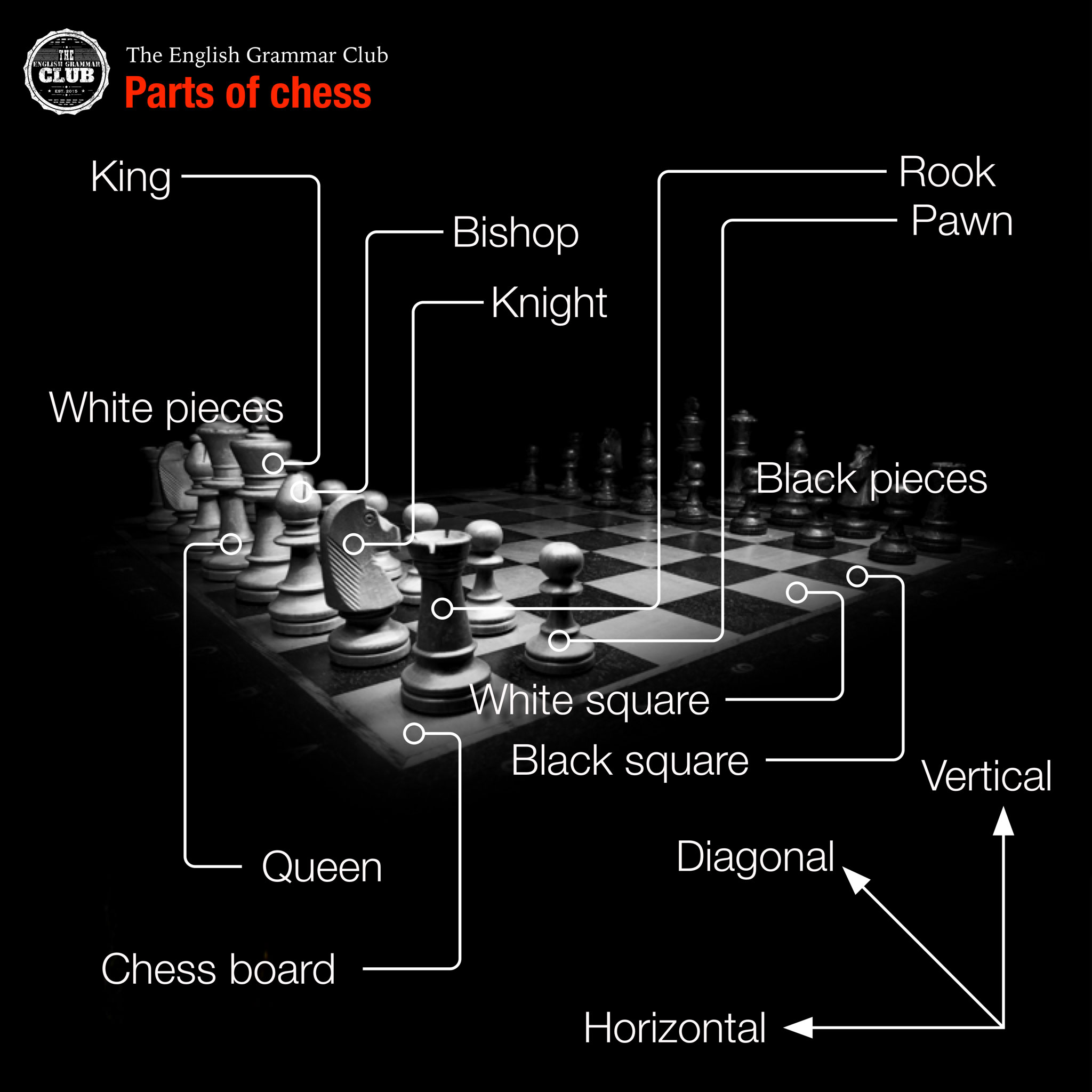
Parts of chess Grammar Tips
Let's take a look at a detailed explanation of each of these pieces. 1. The King. The King is the most important and integral piece on the chessboard and usually, all chess strategies are based around protecting your own King and attacking the opposite King. If you trap the opposite King, it is called a checkmate, which means, you won the game.
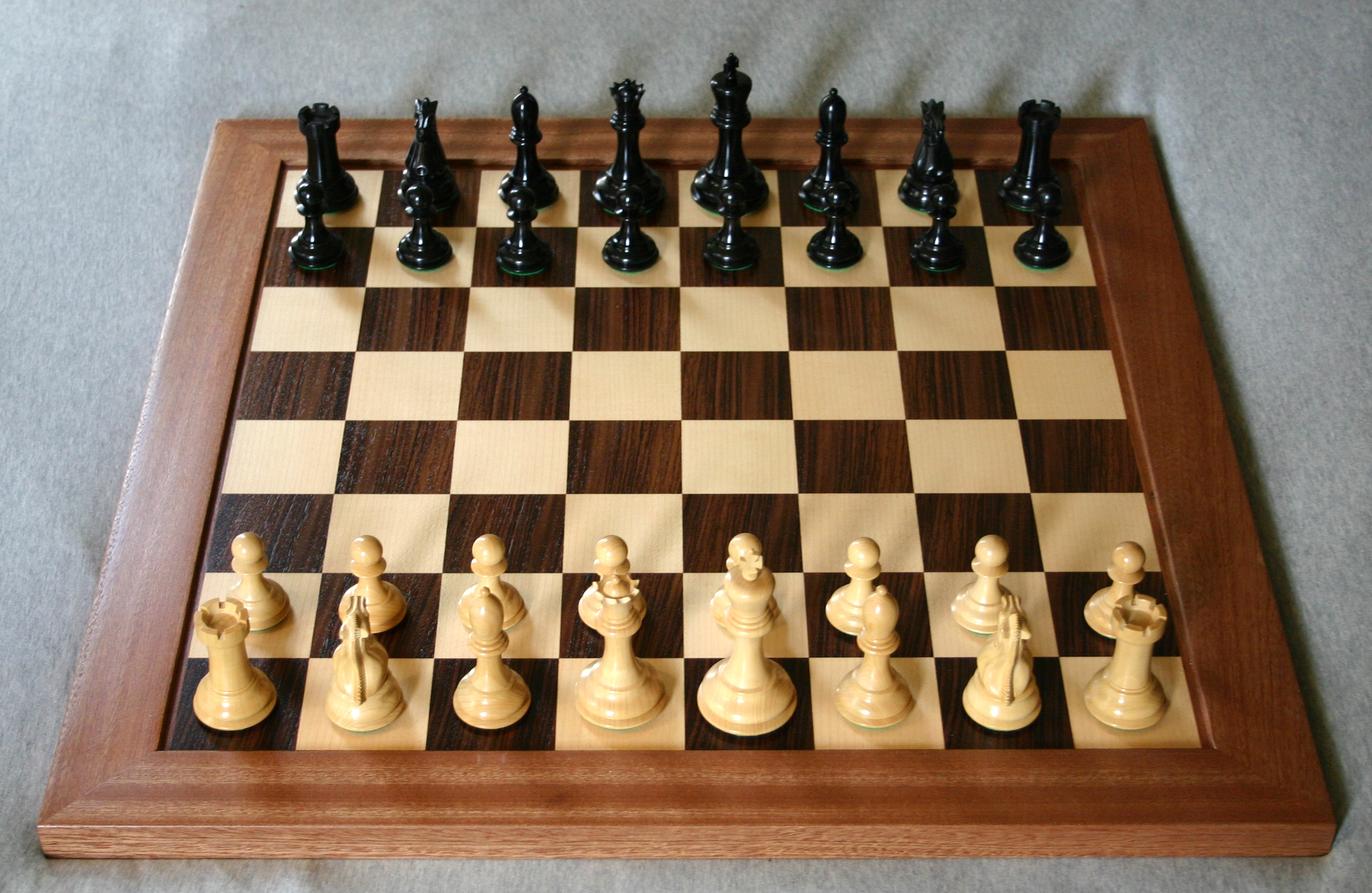
Chess AncientChess
Pawns - Aside from the opening move, pawns can only move one space forward per turn. In terms of capturing, pawns are permitted to move one space forward diagonally to capture an opponent's piece. Rooks - Rooks are allowed to move any number of vacant spaces in any direction except for diagonally. Knights - Knights' movements are iconic because.

Names of All Chess Pieces Just in Case You Don't Know Any of Them Ajedrez, Educacion
1. The Pawn. The pawn is the smallest, most numerous, and widely regarded as the weakest of all the chess pieces and is valued or worth one point. I have, however, played many games where I both won and lost because of the pawns' superior number and occasionally because of their possibility of becoming other pieces.
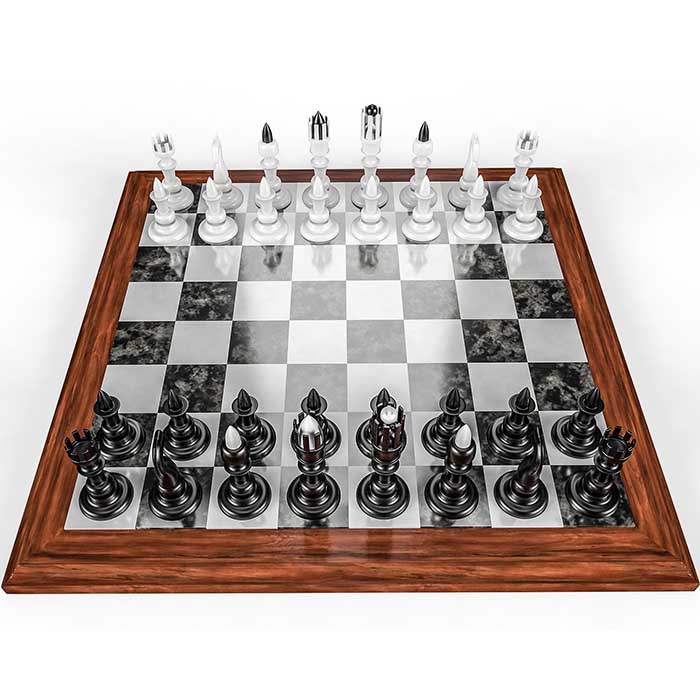
Chess Board Components, Specifications & How it's Made
). The pieces that belong to each player are distinguished by color: the lighter colored pieces are referred to as "white" and the player that controls them as "White", whereas the darker colored pieces are referred to as "black" and the player that controls them as "Black". The word "piece" has three meanings, depending on the context.

Name of Chess Pieces and Its pronunciation YouTube
Pawn Shortest of all, there are eight pawns in each set. The pawns may move one or two spaces forward in their first move, and one space forward in their subsequent moves. A pawn can move to the space diagonally forward on the left or the right, but only to kill a piece of the opponent. Rooks (2 pieces) There are two rooks in a set of chess pieces.
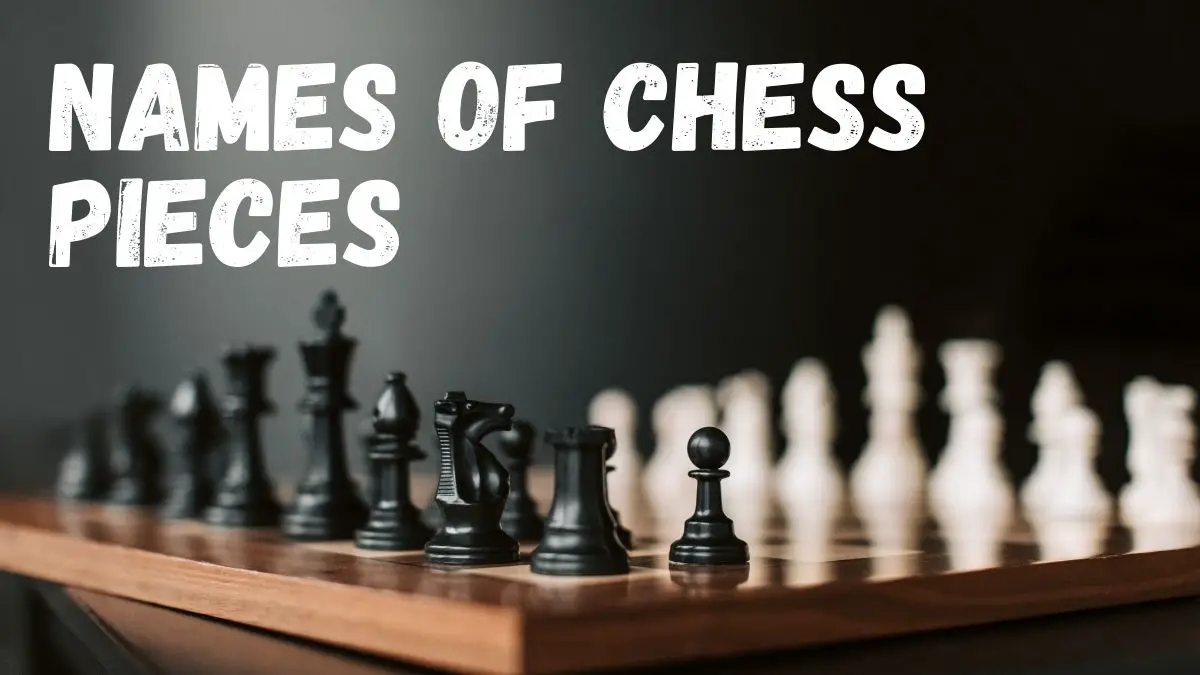
Names Of Chess Pieces and their moves ChessEasy
Read about the names of every chess piece, including a complete guide to how each piece moves across the board- and how to . Starting out in chess can feel intimidating at first, but the pieces themselves are very simple and once you begin to learn how they move, the game comes together very quickly..
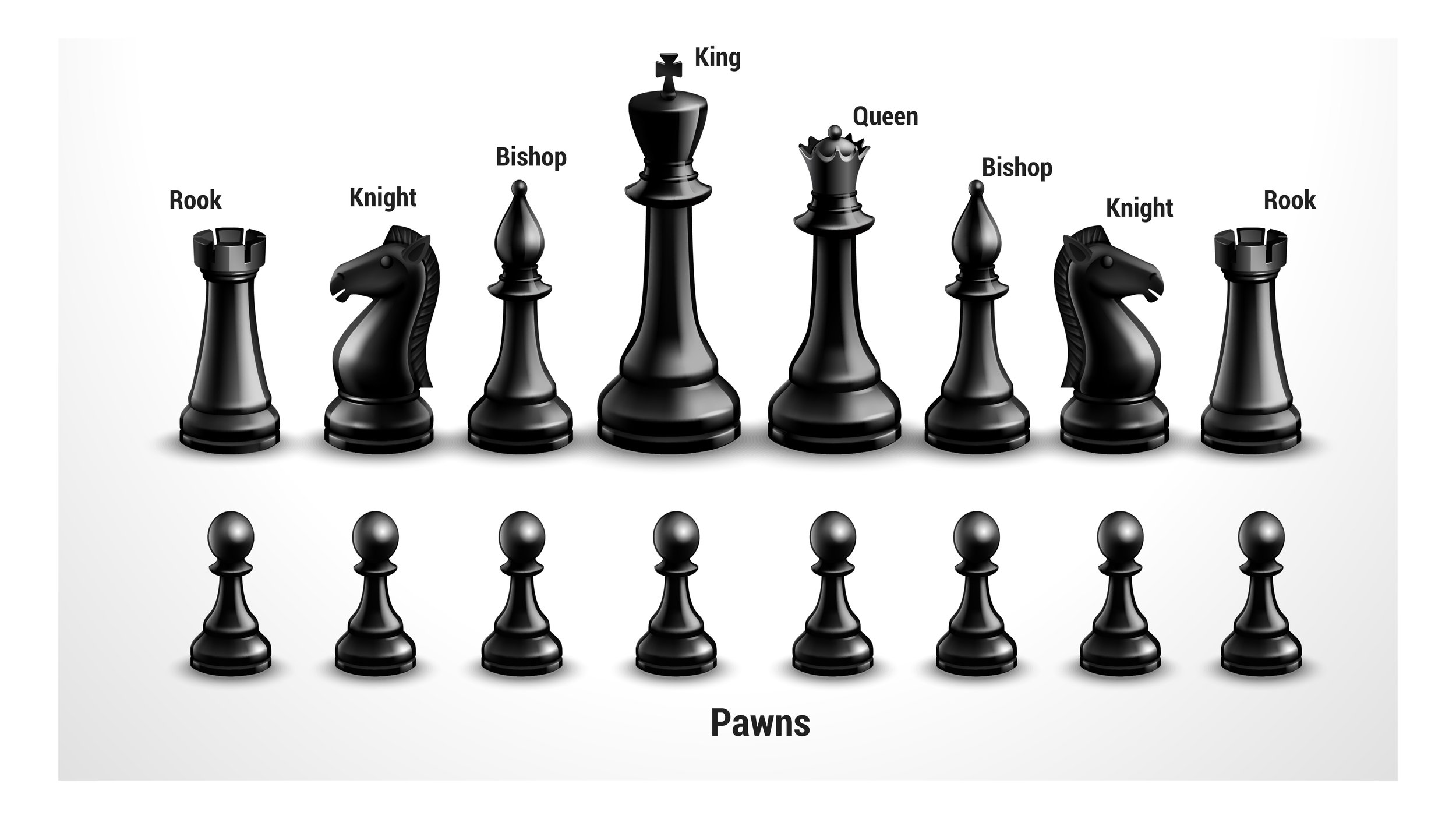
How to Set Up a Chess Board—Explained — Mashup Math
The queen is the most powerful piece on the chessboard and one of the most famous components in any game. It is the most valuable piece in the game of chess in terms of raw power, apart from the king.. The table given below contains all the earlier names of the chess pieces. Original Name: Modern Chess Pieces: Original Movement: Horse.
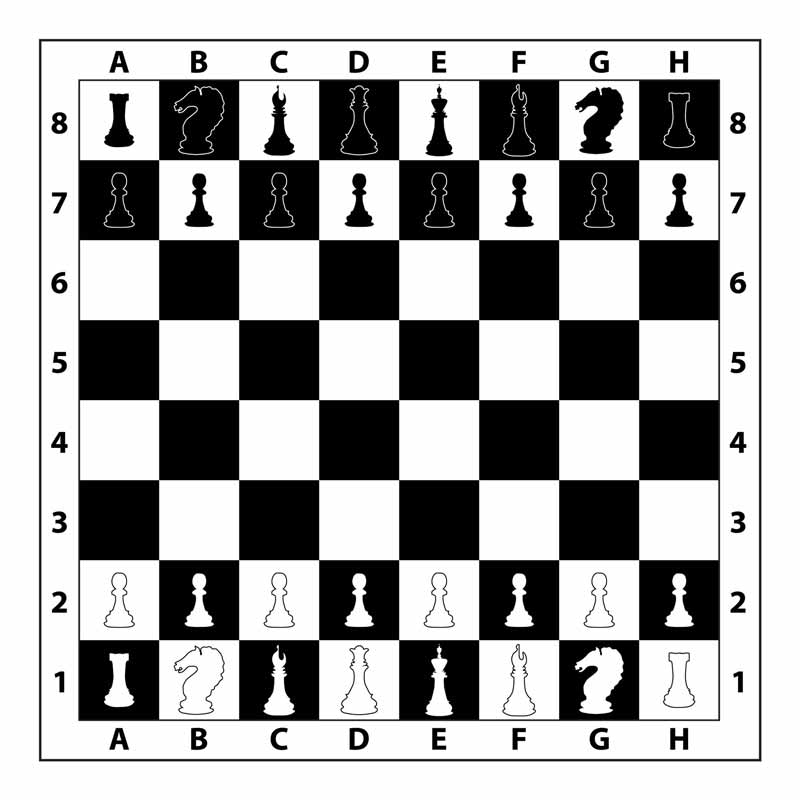
Chessboard Setup The Ultimate Guide to Setting up a Chess Board
The six different types of pieces are: king, rook, bishop, queen, knight, and pawn. chess pieces A variety of types of chess pieces. More than 500 different patterns of chess pieces have been recorded.
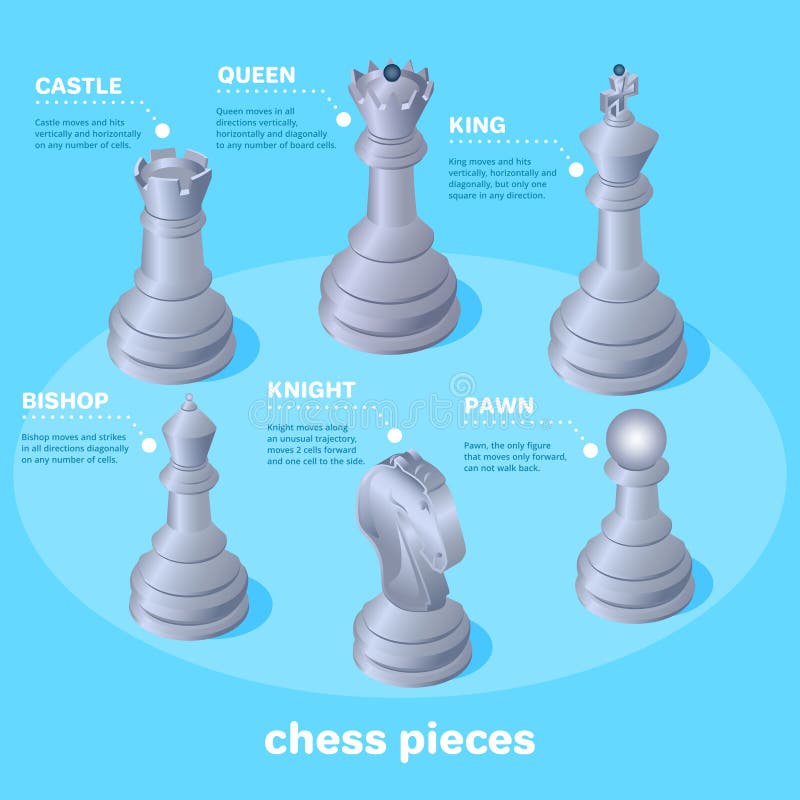
Chess Pieces and Their Names, School of Chess Stock Vector Illustration of isolated
The six elements which make up chess are: 1) Space 2) Time 3) Force 4) Position 5) Harmony 6) Dynamics In this and future articles we will explain to you what each element is and how to recognise and take advantage of each. We will also explain to you the properties of each particular element and how to exploit them. The Law of Equilibrium
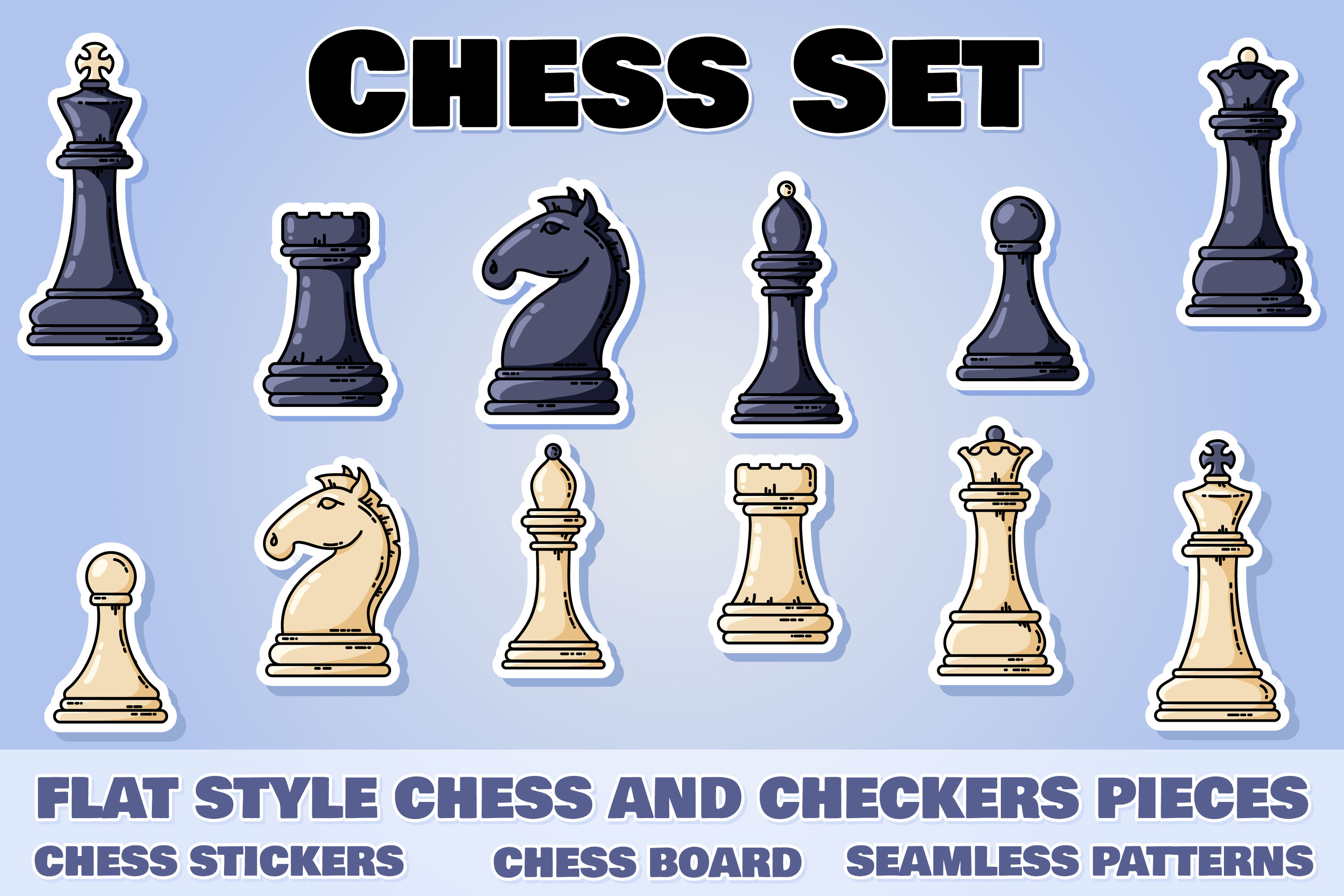
Chess Set
White to play and draw, a chess composition by Richard Réti (c. 1922) Initially it appears that White is lost because the Black pawn can outrace the White king to its queening square at h1, while the Black king can easily intercept the White pawn on its way to its queening square at c8.

Chess Pieces Names, Values and Moves 365Chess
1) Pawn The eight pawn pieces of a chess player move one step forward from the second move onwards. Only on the first move do you have the choice of moving it two steps forward. The pawns are like the foot soldiers in a battle, taking up the front row. The pawn can capture the opponent's chess piece by moving a step diagonally.

How to Set Up a Chessboard Step by Step Chessbazaar's Guide
Chess pieces or "chessmen" are equipment used by the players while playing chess. These chess pieces are moveable objects. When a player changes one piece's position, this movement is known as "making a move." A set of chess pieces come in 32 units of light coloured (16 pieces referred to as white) and dark coloured (16 pieces referred to as.